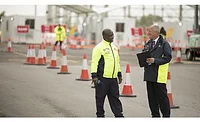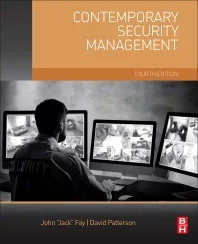COVID-19 Heroes
Maximizing COVID-19 pandemic response at Armour College
Chief of Police and founder of Armour College, Richard McCann has been responsible for leading the college’s response to the widespread COVID-19 pandemic, immediately putting policies and medical screenings into place, acquiring personal protective equipment (PPE), and distributing medical information to staff and students on all campuses to ensure appropriate safety and health protocols at the college.
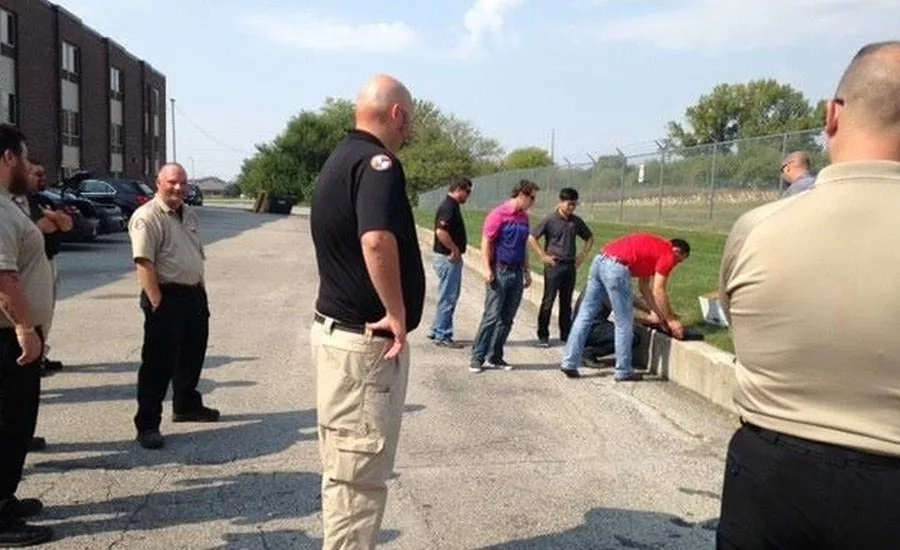
Established in 2009, Armour College Inc. is a nationwide provider of technical and career education training for students seeking careers in the legal, medical, public safety, private security and business fields.
Image courtesy of McCann
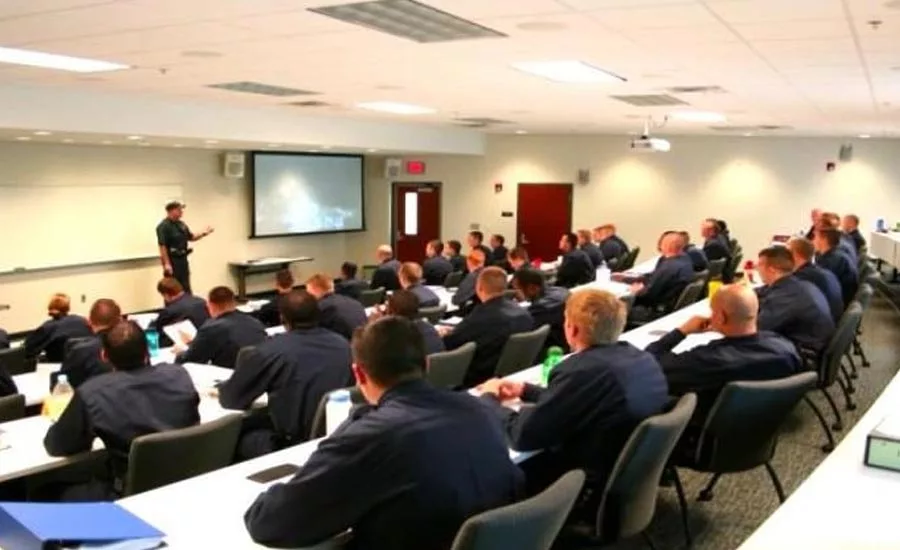
Through their campus-based and Internet school system, Armour Schools offer specialized technical education programs to students that will prepare them for their chosen profession in Virginia, Washington D.C., North Carolina, South Carolina, Tennessee, Alabama, Connecticut, Georgia.
Image courtesy of McCann
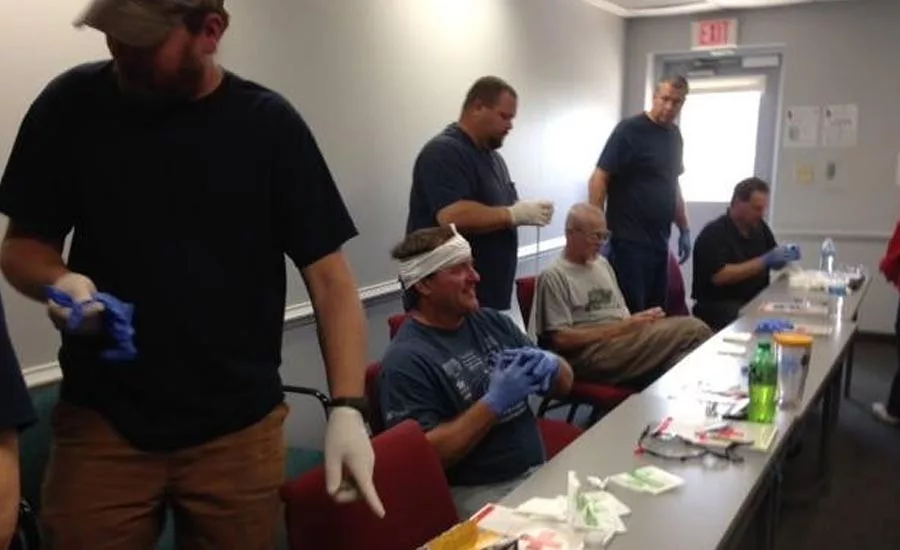
At Armour College, McCann says they had already initiated several safety and security policies before the government provided guidance on pandemic restrictions. McCann adds, “We have always remained hands-on with cleanliness, ensuring availability and access and awareness to supplies that promote healthy hygiene practices, such as touchless hand sanitizer stations or handwashing stations."
Image courtesy of McCann
Established in 2009, Armour College Inc. is a nationwide provider of technical and career education training for students seeking careers in the legal, medical, public safety, private security and business fields. Through their campus-based and Internet school system, Armour Schools offer specialized technical education programs to students that will prepare them for their chosen profession in Virginia, Washington D.C., North Carolina, South Carolina, Tennessee, Alabama, Connecticut and Georgia.
Chief of Police and founder of Armour College, Richard McCann has been responsible for leading the college’s response to the widespread COVID-19 pandemic. When he became aware in late January 2020, that a strong virus, unlike the average flu, was beginning to spread in the United States, he immediately put policies into place, acquired personal protective equipment (PPE), put in place medical screenings, and distributed Center of Disease (CDC), Occupational Safety and Health Administration (OSHA) and other relevant medical information to staff and students on all campuses to ensure appropriate safety and health protocols at the college.
With 45 years of private security and law enforcement experience and 35 years of professional experience as an instructor in the public safety and law enforcement arena, McCann is well versed in the private security and public law enforcement sector. He is national speaker and instructor in areas of use of force, crime suppression and prevention, loss prevention, campus security, private security, and private policing as well as contract security services, and certified in more than 30 disciplines including law enforcement, Fire/Emergency Medical Services (EMS) and crises response.
“We were prepared for the pandemic,” McCann says. “Because all of our officers are EMT, paramedics, and many of us already work for a secondary agency, we have been hands-on since the onset of the pandemic, tracking the cases, and preparing for it before we were impacted.”
McCann took a number of OSHA courses that introduce Infectious Disease Prevention and Response (IDPR) Plan for controlling COVID-19, provide general awareness of COVID-19 preventive measures such as disease characteristics, hierarchy of controls, exposure classifications, personal hygiene and training.
After learning measures for protecting people from exposure and infection from the virus, McCann started his own course, educating Armour College instructors, staff, as well as the students on the strains of the virus, how it developed and how it spreads. “We're staying very close in touch with the CDC, OSHA, and other government regulatory agencies to keep up with the most up-to-date information on how to protect and prevent the spread of COVID-19 at our College,” McCann says.
A number of staff also became certified through Johns Hopkins University on contact tracing, which teaches students about the science of SARS-COV-2, including the infectious period, the clinical presentation of COVID-19, and the evidence for how SARS-CoV-2 is transmitted from person-to-person and why contact tracing can be an effective public health intervention. “Staff learned how contact tracing is done, including how to build rapport with cases, identify their contacts and support both cases and their contacts to stop transmission in our communities, while learning about the important ethical considerations around contact tracing,” he says.
“Completing several courses on how to measure and maximize the impact of COVID-19 contact tracing helped assist our staff when we had a close incident where we thought that someone was affected,” he adds. “We began to contact the people that had been in close contact with the possibly infected person, and let them know of the potential exposure.” This ongoing monitoring and assessment of case investigation and contact tracing efforts helped give Chief McCann and staff a leg up to curb the spread and keep the community safe.
At Armour College, McCann says they had already initiated several safety and security policies before the government provided guidance on pandemic restrictions. He says, “We have always remained hands-on with cleanliness, ensuring availability and access and awareness to supplies that promote healthy hygiene practices, such as touchless hand sanitizer stations or handwashing stations. However, to prevent spread of COVID, we made sure to maintain ongoing verbal communication to promote everyday protective measures such as social distancing, the importance of masks, proper handwashing and cleaning and disinfecting.”
For more than three months, visitors, staff and faculty were not allowed on-campus at any Armour College locations and in-person classes were shut down for several months. “When we did reinitiate, we had class limitations, using a combination of in-person and online classes. When students were required to be in one of our locations for a hands-on practical exam, we scheduled them by appointment to come in, following all CDC and OSHA guidelines.”
Collectively, says McCann, all staff, faculty, and students have worked together to identify risks related to COVID-19 and prevent the exposure and spread of the virus, not only within the school and campus system, but within the communities where the campuses are located. Led by McCann, all staff and faculty, who are also paramedics, nurses and firefighters, helped assist in numerous areas of the community.
“Since the age of 17, Chief McCann has dedicated his entire life to helping others while promoting good will and being a resource to our college and to the communities that we serve,” wrote Kyle Green, officer at Armour College, in his nomination form. “In today's world where so many do not take a stand or step up to do the right thing, Chief McCann has and continues to be an asset, an inspiration and a leader – a man who cares deeply about public safety and education, and making this world a better place to live in.”
Looking for a reprint of this article?
From high-res PDFs to custom plaques, order your copy today!




